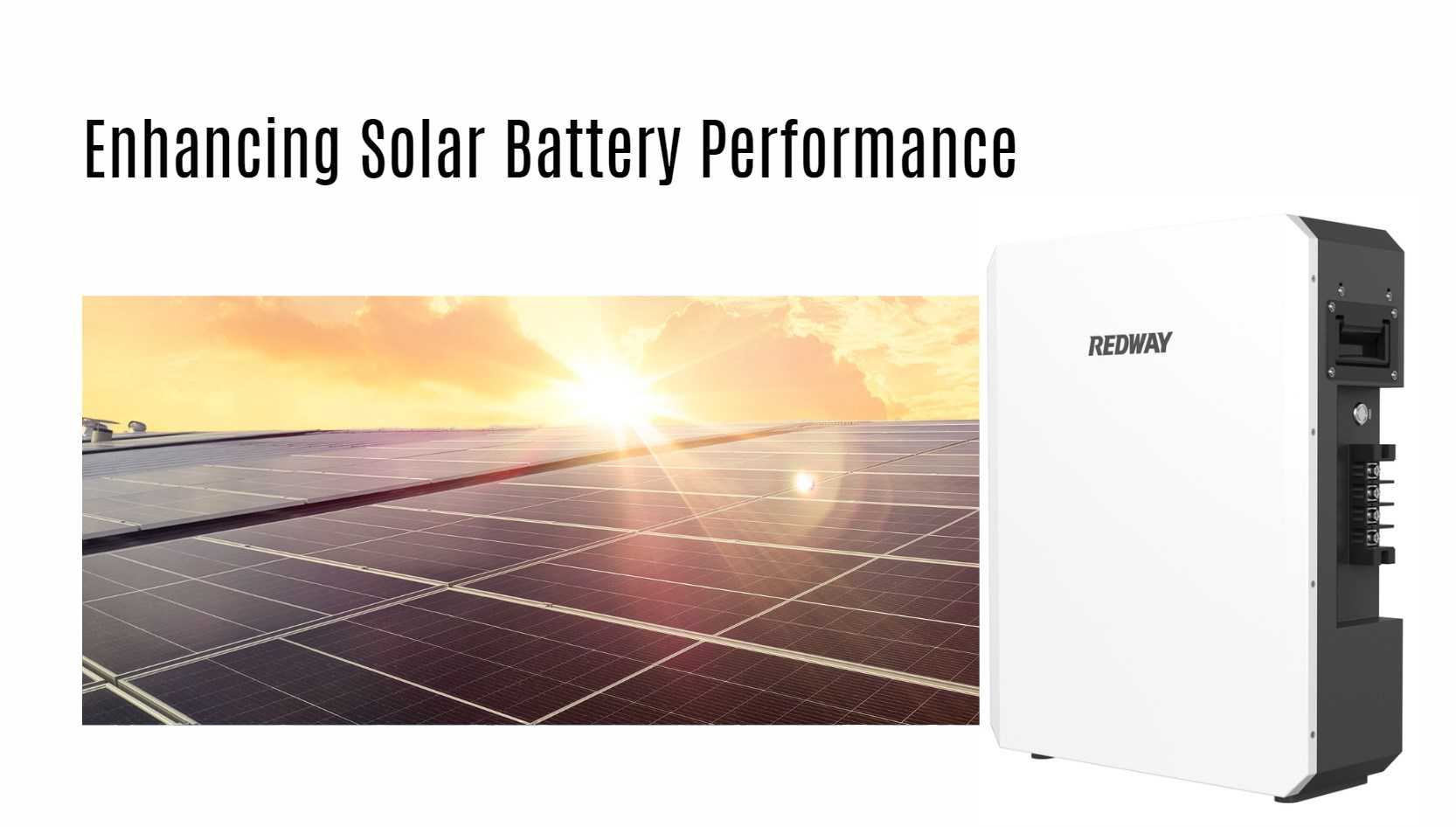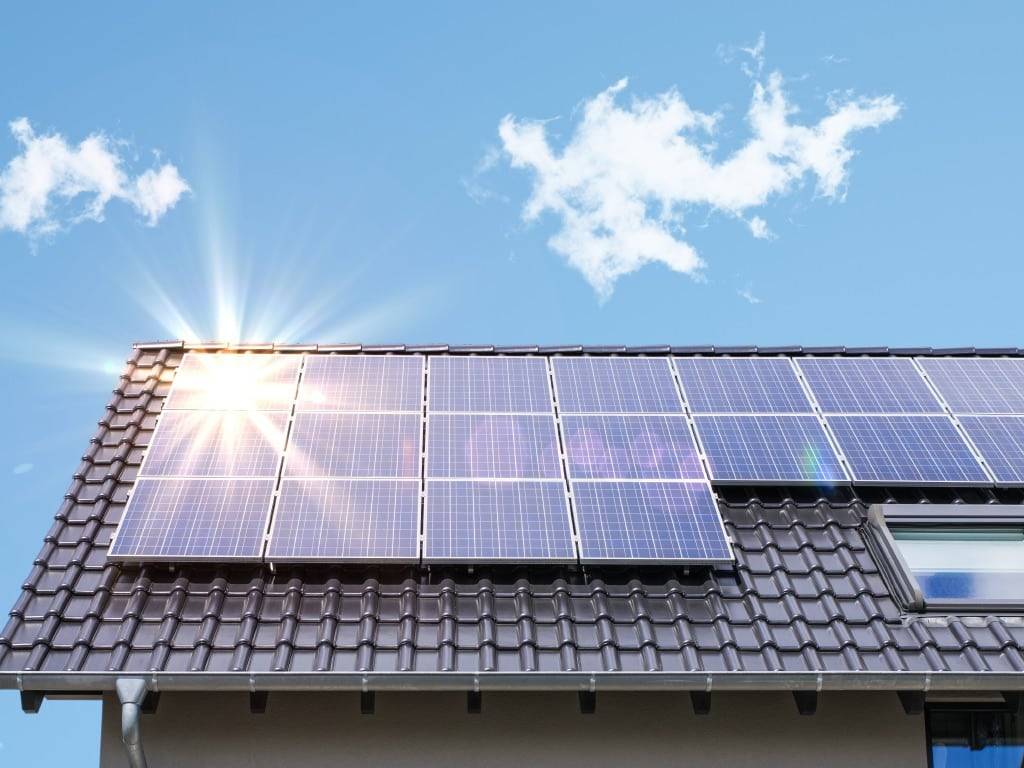-
Choosing the Right Solar Battery: A comprehensive guide helps you understand the factors to consider when selecting a solar battery. Capacity, depth of discharge, cycle life, and compatibility with your solar system are important factors to evaluate. By choosing the right battery, you can ensure optimal performance and long-term reliability.
-
Enhancing Efficiency with Power Optimizers and Micro-inverters: Power optimizers and micro-inverters are technologies that can enhance the efficiency of solar energy systems. They optimize the power output of each solar panel, mitigating the impact of shading or mismatched panels. By integrating these technologies, you can maximize the overall performance of your solar battery system.
-
Implementing Maintenance Practices: Proper maintenance is crucial for the long-term performance of solar batteries. A comprehensive guide provides insights into maintenance practices such as regular cleaning, monitoring battery health, and ensuring proper ventilation. These practices help optimize the performance and lifespan of your solar battery.
Choosing the Right Solar Battery
-
Specific Power Needs: Assess your specific power requirements to determine the capacity and size of the solar battery you need. Consider factors such as the amount of energy you consume daily, peak power demands, and any backup power requirements during outages.
-
Battery Specifications: Look for important specifications such as voltage, amp hours, and wattage rating when choosing a solar battery. These specifications determine the battery’s energy storage capacity and power output capabilities, ensuring compatibility with your solar panels and inverter.
-
Battery Types: Consider different battery types, such as lithium-ion batteries and lead-acid batteries. Lithium-ion batteries are known for their long service life and high efficiency, while lead-acid batteries can be a more budget-friendly option. Evaluate the pros and cons of each type based on factors like cost, lifespan, and maintenance requirements.
-
Compatibility and Efficiency: Ensure that the solar battery you choose is compatible with your solar panels and inverter. Optimize efficiency by selecting a battery with high round-trip efficiency, which indicates how much energy is retained during charging and discharging cycles. Additionally, consider the depth of discharge, which determines how much of the battery’s capacity can be used before recharging.
Optimal Installation Practices
Proper installation plays a crucial role in maintaining battery health. Ensure your battery is installed in a cool, well-ventilated area to mitigate overheating risks. Heat is a major factor contributing to battery degradation, so placing batteries in shaded, temperature-controlled environments significantly extends their operational life and performance.
Enhancing Efficiency with Power Optimizers and Micro-inverters
-
Power Optimizers: Power optimizers are devices that optimize the output of each solar panel in a system. By individually tracking and optimizing the power output of each panel, power optimizers mitigate losses caused by shading, panel mismatch, or other factors. This ensures that each panel operates at its maximum potential, improving overall system efficiency.
-
Micro-inverters: Micro-inverters are small inverters that are installed on each solar panel in a system. Unlike traditional string inverters, which convert the DC power from multiple panels to AC power, micro-inverters convert the DC power to AC power at the panel level. This allows each panel to operate independently, reducing the impact of shading or system failures on the entire array and improving overall system performance.
-
Benefits of Enhanced Efficiency: By incorporating power optimizers or micro-inverters into a solar power system, you can experience several benefits. These include increased energy production, improved system reliability, enhanced safety, and the ability to monitor the performance of each panel individually. Additionally, the modular nature of power optimizers and micro-inverters allows for easier system expansion or maintenance.
-
Choosing the Right Technology: The choice between power optimizers and micro-inverters depends on various factors such as system size, shading conditions, budget, and specific requirements. Consult with a solar energy professional to determine the best technology for your system and to ensure compatibility with other system components.
Leveraging Smart Solar Technology
Embrace the advancements in smart solar power systems to achieve unparalleled efficiency gains. These systems employ machine learning algorithms to analyze weather patterns and energy consumption data. By optimizing solar panel output in real-time, smart systems ensure maximum energy utilization, even during variable weather conditions. Remote monitoring capabilities via dedicated apps provide seamless control and monitoring, empowering users to adjust system settings for optimal performance anytime, anywhere.
Wholesale lithium golf cart batteries with 10-year life? Check here.
Maintenance and Monitoring Best Practices
Regular maintenance is crucial for sustaining battery performance over time. Implement a routine inspection schedule to check for potential issues such as corrosion, dust accumulation, or module shading. Monitoring battery performance metrics ensures early detection of anomalies, enabling proactive maintenance and maximizing system uptime and reliability.
Want OEM lithium forklift batteries at wholesale prices? Check here.
Conclusion
In conclusion, optimizing your solar battery’s performance is a multifaceted endeavor that requires careful planning and utilization of advanced technologies. By choosing high-efficiency lithium-ion batteries, ensuring proper installation practices, integrating power optimizers and micro-inverters, and leveraging smart solar technology, you can significantly enhance your solar system’s efficiency and durability. At [Your Company Name], we’re committed to empowering you with the knowledge and tools needed to achieve sustainable energy independence.
Transform your solar power system today and unlock its full potential. Contact us to learn more about optimizing your solar battery performance and making the most of your renewable energy investment.
With these tips, you can optimize your solar power system’s battery performance and get the most out of your renewable energy investment. Whether you want to save money on your energy bills or reduce your carbon footprint, solar power is the way to go. So, power up your solar battery game, get smarter with solar power, and optimize your battery efficiency with ease!








